February 6 stands as one of history’s most eventful days, witnessing the rise and fall of empires, groundbreaking discoveries, and moments that shaped our modern world across centuries of human achievement.
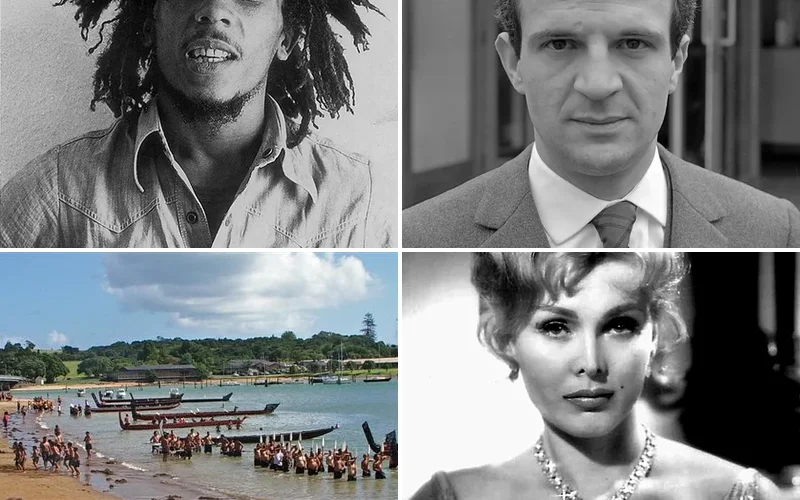
Politics and Government Events on February 6
1918 – British Women Gain Voting Rights
Parliament passed the Representation of the People Act 1918, granting voting rights to women over 30 who met minimum property qualifications. This landmark legislation marked a crucial victory in the women’s suffrage movement.
The act represented a significant step toward gender equality in British democracy. Though limited in scope, it paved the way for full women’s suffrage within a decade.
1952 – Elizabeth II Becomes Queen
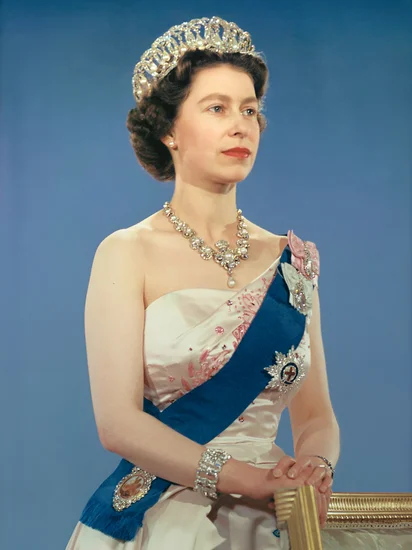
Elizabeth II ascended to the British throne upon her father George VI’s death, becoming Queen of the United Kingdom and Head of the Commonwealth. Remarkably, she learned of her succession while staying in a tree house at Kenya’s Treetops Hotel.
The 25-year-old princess immediately became one of the world’s most powerful monarchs. Her reign would span over seven decades, making her Britain’s longest-serving monarch.
1989 – Polish Round Table Talks Begin
The historic Round Table Talks commenced in Poland, marking the beginning of communism’s overthrow in Eastern Europe. Opposition leaders sat down with government officials to negotiate democratic reforms.
These negotiations would prove instrumental in Poland’s peaceful transition to democracy. The talks inspired similar movements across the Soviet bloc, accelerating the fall of communism.
2000 – Russia Captures Grozny
Russian forces captured Grozny during the Second Chechen War, forcing the separatist Chechen Republic of Ichkeria government into exile. The victory marked a decisive moment in Russia’s campaign to maintain control over Chechnya.
The fall of Grozny effectively ended organized Chechen resistance to Russian rule. However, the conflict’s aftermath would continue to influence regional politics for years.
2006 – Stephen Harper Becomes Canadian Prime Minister

Stephen Harper assumed office as Canada’s 22nd Prime Minister, leading the Conservative Party to victory after years of Liberal rule. His appointment marked a significant shift in Canadian federal politics.
Harper’s leadership would span nearly a decade, implementing conservative policies on taxation, crime, and foreign affairs. His tenure reshaped Canada’s political landscape and international relationships.
Military and Naval History on February 6
1922 – Washington Naval Treaty Signed
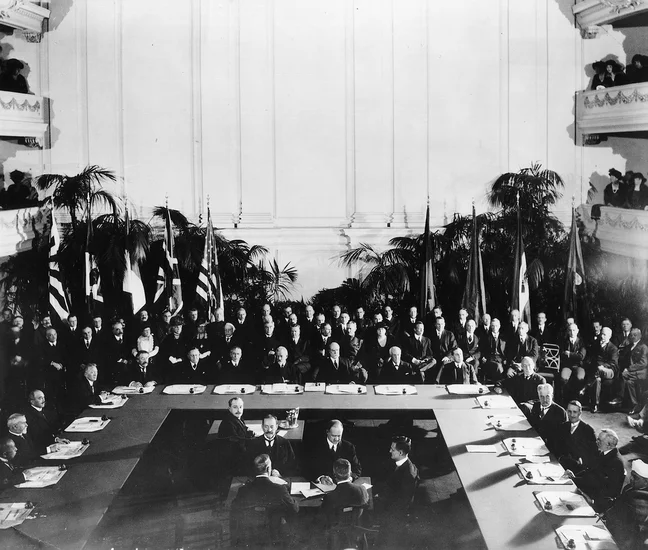
The Washington Naval Treaty was signed in Washington, D.C., limiting naval armaments of the United States, Britain, Japan, France, and Italy. The agreement aimed to prevent a costly naval arms race following World War I.
The treaty established specific ratios for battleship tonnage among the signatory nations. This diplomatic achievement helped maintain naval balance and reduce military tensions during the interwar period.
1944 – Great Raids Against Helsinki Begin
Soviet forces launched the Great Raids Against Helsinki during World War II, targeting the Finnish capital with intensive bombing campaigns. The attacks represented a significant escalation in the Continuation War between Finland and the Soviet Union.
The raids caused substantial damage to Helsinki’s infrastructure and civilian areas. Finnish air defenses struggled to counter the overwhelming Soviet air superiority during these devastating attacks.
1951 – Canadian Army Enters Korean War
The Canadian Army entered combat operations in the Korean War, joining United Nations forces fighting against North Korean and Chinese troops. Canadian forces would play a significant role in major battles throughout the conflict.
Over 26,000 Canadian military personnel served in Korea during the three-year war. Their contributions helped maintain the UN coalition’s effectiveness in this pivotal Cold War confrontation.
1981 – Ugandan Bush War Begins
The National Resistance Army of Uganda launched an attack on a Ugandan Army installation in Mubende District, beginning the Ugandan Bush War. This conflict would ultimately lead to Yoweri Museveni’s rise to power.
The guerrilla campaign challenged Obote’s government through rural insurgency tactics. The war’s outcome would fundamentally reshape Uganda’s political structure and leadership for decades.
Science and Discovery Milestones on February 6
1959 – First Integrated Circuit Patent Filed
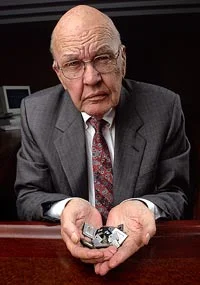
Jack Kilby of Texas Instruments filed the first patent for an integrated circuit, revolutionizing electronics and computer technology. His invention would become the foundation of modern digital devices.
The integrated circuit enabled the miniaturization of electronic components on unprecedented scales. Kilby’s breakthrough laid the groundwork for everything from calculators to smartphones.
1959 – Titan Missile Successfully Test-Fired
At Cape Canaveral, Florida, engineers accomplished the first successful test firing of a Titan intercontinental ballistic missile. The achievement marked a crucial milestone in America’s nuclear deterrent capabilities.
The Titan missile system would become a cornerstone of U.S. strategic defense during the Cold War. Its success demonstrated American technological prowess in the space and missile race.
2018 – SpaceX Falcon Heavy Maiden Flight
SpaceX’s Falcon Heavy super heavy launch vehicle completed its maiden flight, demonstrating unprecedented capabilities in space transportation. The mission captured global attention with its innovative payload and landing procedures.
The successful launch marked a new era in commercial space exploration and satellite deployment. Falcon Heavy’s reusable rocket technology promised to dramatically reduce space mission costs.
Cultural and Arts Events on February 6
1958 – Munich Air Disaster Kills Manchester United Players
Eight Manchester United F.C. players and 15 other passengers perished in the Munich air disaster. The tragedy struck the heart of English football, claiming some of the sport’s brightest talents.
The disaster devastated the “Busby Babes,” Manchester United’s promising young team. The club’s recovery from this tragedy became one of football’s most inspiring stories of resilience.
1998 – Washington National Airport Renamed
Washington National Airport was officially renamed Ronald Reagan National Airport in honor of the 40th President of the United States. The renaming sparked considerable political debate about honoring the former president.
The airport’s new name reflected Reagan’s significant impact on American politics and culture. However, the decision remained controversial among critics of Reagan’s policies and legacy.
Religious and Social Events on February 6
1918 – British Women Gain Voting Rights
Parliament passed the Representation of the People Act 1918, granting voting rights to women over 30 who met minimum property qualifications. This landmark legislation marked a crucial victory in the women’s suffrage movement.
The act represented a significant step toward gender equality in British democracy. Though limited in scope, it paved the way for full women’s suffrage within a decade.
1987 – First Woman Appointed to Australian High Court

Justice Mary Gaudron became the first woman appointed to the High Court of Australia, breaking a significant gender barrier in the nation’s highest judicial body. Her appointment marked a historic moment for women’s rights in Australia.
Gaudron’s elevation to the High Court represented decades of progress in legal gender equality. Her judicial career would span over fifteen years, establishing important precedents in Australian law.
2025 – Secretary of State Suspends Asylum Agreements
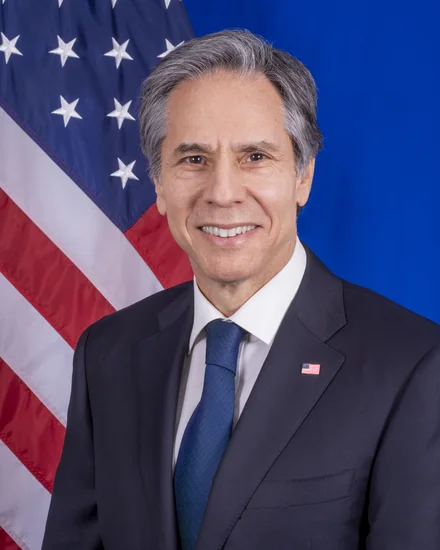
U.S. Secretary of State Antony Blinken suspended agreements with Guatemala, El Salvador, and Honduras to send asylum seekers back to their home countries. The decision reflected changing American immigration policy priorities.
The suspension signaled a shift toward more humanitarian approaches to Central American migration. This policy change would significantly impact thousands of asylum seekers throughout the region.
Business and Economic Events on February 6
1976 – Lockheed Bribery Scandal Revealed
Lockheed Corporation president Carl Kotchian admitted before a United States Senate subcommittee that the company had paid approximately $3 million in bribes to Japanese Prime Minister Kakuei Tanaka’s office. The revelation shocked both American and Japanese political establishments.
The scandal exposed widespread corporate corruption in international defense contracts. Kotchian’s testimony led to significant reforms in corporate governance and international business practices.
1919 – Seattle General Strike Begins

The five-day Seattle General Strike began as more than 65,000 workers in Seattle, Washington, walked off the job. The massive work stoppage demonstrated organized labor’s growing power in post-World War I America.
The strike effectively shut down the entire city, creating a unprecedented show of worker solidarity. Though ultimately unsuccessful, it inspired labor movements across the United States.
1996 – Willamette Valley Flood Causes Massive Damage
Floods in Oregon’s Willamette Valley caused over $500 million in property damage throughout the Pacific Northwest. The natural disaster highlighted the region’s vulnerability to extreme weather events.
The flooding affected thousands of residents and businesses across multiple states. Recovery efforts would take years and prompt significant improvements in flood management systems.
Transportation and Infrastructure on February 6
1951 – Pennsylvania Railroad Disaster
The Broker, a Pennsylvania Railroad passenger train, derailed near Woodbridge Township, New Jersey, killing 85 people and injuring over 500 more. The accident ranks among the worst rail disasters in American history.
The catastrophic derailment exposed serious safety deficiencies in railroad operations. The tragedy prompted significant improvements in train safety protocols and infrastructure maintenance.
1996 – Birgenair Flight 301 Crashes

Birgenair Flight 301 crashed off the coast of the Dominican Republic, killing all 189 people on board. The disaster became the deadliest aviation accident involving a Boeing 757 aircraft.
The crash investigation revealed critical maintenance failures and pilot error. The tragedy led to improved aviation safety protocols and better pilot training programs.
1978 – Blizzard of 1978 Strikes New England

The Blizzard of 1978, one of the worst Nor’easters in New England history, struck the region with sustained winds of 65 mph and snowfall of four inches per hour. The storm paralyzed transportation throughout the Northeast.
The historic blizzard stranded thousands of motorists and shut down major cities. Emergency response efforts revealed both the region’s vulnerability and its resilience in extreme weather.
Sports and Recreation on February 6
1958 – Munich Air Disaster Devastates Manchester United
Eight Manchester United F.C. players and 15 other passengers were killed in the Munich air disaster. The tragedy struck the heart of English football, claiming some of the sport’s brightest talents.
The disaster devastated the “Busby Babes,” Manchester United’s promising young team. The club’s recovery from this tragedy became one of football’s most inspiring stories of resilience.
1996 – Willamette Valley Sports Facilities Flooded
Floods in Oregon’s Willamette Valley caused over $500 million in property damage throughout the Pacific Northwest, affecting numerous sports facilities and recreational areas. The natural disaster disrupted athletic programs across the region.
Many schools and communities lost playing fields and gymnasium facilities. The rebuilding process strengthened regional cooperation in sports infrastructure development.
1978 – Winter Sports Cancelled Due to Blizzard

The Blizzard of 1978 forced the cancellation of numerous winter sporting events across New England. The storm’s unprecedented severity made outdoor activities impossible for days.
Athletic programs throughout the region struggled to reschedule competitions. The blizzard demonstrated the vulnerability of outdoor sports to extreme weather conditions.
Notable Births on February 6
1911 – Ronald Reagan Born
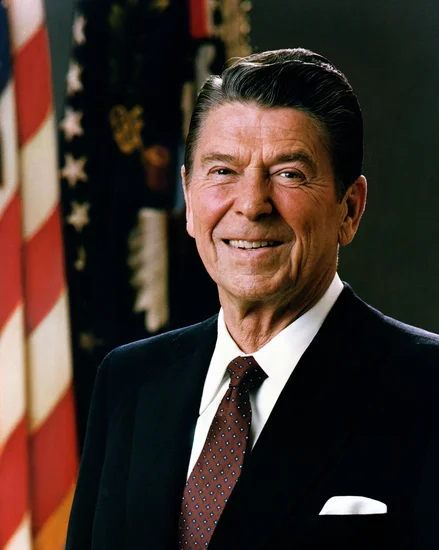
American actor and politician Ronald Reagan was born in Tampico, Illinois. His childhood in the Midwest shaped his values and communication style that would define his later career.
Reagan would become the 40th President of the United States, serving from 1981 to 1989. His presidency transformed American politics and helped end the Cold War.
1945 – Bob Marley Born

Jamaican singer-songwriter and guitarist Bob Marley was born in Nine Mile, Saint Ann Parish, Jamaica. His early exposure to music and Rastafarian culture would influence his revolutionary sound.
Marley became reggae music’s most influential ambassador, spreading Jamaican culture worldwide. His songs of peace, love, and social justice continue inspiring generations.
1944 – François Truffaut Born

French actor, director, producer, and screenwriter François Truffaut was born in Paris. His troubled childhood would later influence his groundbreaking films about youth and society.
Truffaut became a leading figure in the French New Wave cinema movement. His innovative filmmaking techniques revolutionized modern cinema and influenced directors worldwide.
1962 – Axl Rose Born

American singer-songwriter and producer Axl Rose was born in Lafayette, Indiana. His powerful vocal range and dynamic stage presence would make him a rock icon.
Rose became the lead singer of Guns N’ Roses, one of rock’s most successful bands. His theatrical performances and controversial personality defined hard rock in the late 1980s.
1911 – Ronald Reagan Born

American actor and politician Ronald Reagan was born in Tampico, Illinois. His childhood in the Midwest shaped his values and communication style that would define his later career.
Reagan would become the 40th President of the United States, serving from 1981 to 1989. His presidency transformed American politics and helped end the Cold War.
1940 – Tom Brokaw Born

American journalist and author Tom Brokaw was born in Webster, South Dakota. His early interest in current events led him to pursue a career in broadcast journalism.
Brokaw became one of America’s most trusted news anchors, serving as NBC Nightly News anchor for over two decades. His reporting covered major historical events from Watergate to 9/11.
1916 – Mary Leakey Born
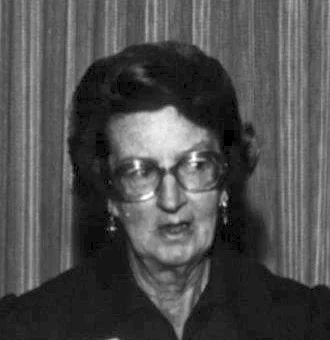
English-Kenyan archaeologist and anthropologist Mary Leakey was born in London. Her fascination with ancient civilizations would lead to groundbreaking discoveries in human evolution.
Leakey’s excavations in East Africa revealed crucial evidence about early human ancestors. Her work revolutionized understanding of human evolution and prehistoric life.
1912 – Eva Braun Born
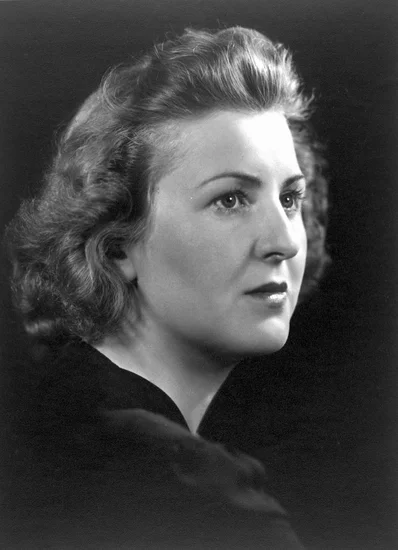
German wife of Adolf Hitler, Eva Braun was born in Munich. Her relationship with Hitler remained largely secret during his rise to power and throughout World War II.
Braun married Hitler in his bunker during the final days of Nazi Germany. Their relationship provides insight into the personal life of one of history’s most notorious dictators.
1921 – Zsa Zsa Gabor Born

Hungarian-American actress and socialite Zsa Zsa Gabor was born in Budapest. Her glamorous lifestyle and numerous marriages made her a Hollywood icon.
Gabor’s wit and charm made her a popular talk show guest for decades. Her catchphrase “dahling” and lavish lifestyle epitomized Hollywood glamour.
1922 – Patrick Macnee Born
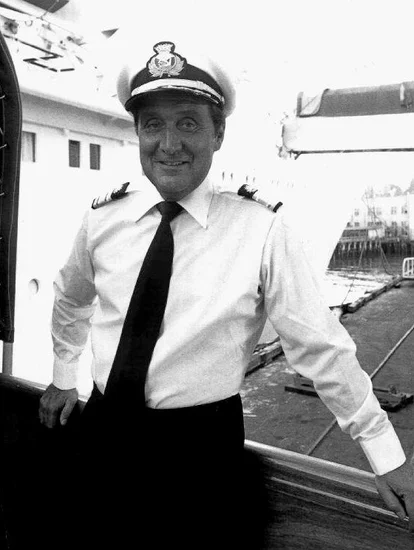
English-American actor and costume designer Patrick Macnee was born in London. His theatrical training and distinctive voice would make him a television icon.
Macnee became famous for his role as John Steed in “The Avengers.” His suave, gentleman spy character influenced popular culture and fashion.
Notable Deaths on February 6
1952 – George VI Dies
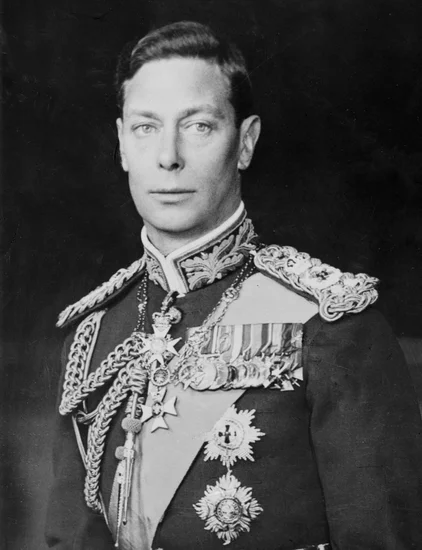
George VI of the United Kingdom passed away at Sandringham House, ending his 15-year reign. His death marked the end of an era and the beginning of Elizabeth II’s historic reign.
The King’s death came as a shock to the British people and Commonwealth nations. His leadership during World War II had earned him widespread respect and affection.
1993 – Arthur Ashe Dies

American tennis player and sportscaster Arthur Ashe died in New York City at age 49. His death from AIDS-related complications shocked the sports world and raised awareness about the disease.
Ashe had broken racial barriers in tennis while becoming a champion for social justice. His legacy extends far beyond sports into civil rights and humanitarian work.
1994 – Jack Kirby Dies
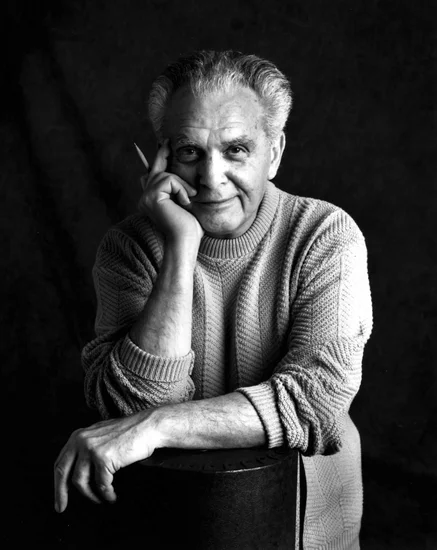
American comic book artist and writer Jack Kirby died in Thousand Oaks, California. His death marked the end of an era in comic book creation and superhero mythology.
Kirby co-created numerous Marvel Comics characters including the X-Men, Fantastic Four, and Thor. His dynamic art style and imaginative storytelling revolutionized comic book illustration.
1998 – Falco Dies
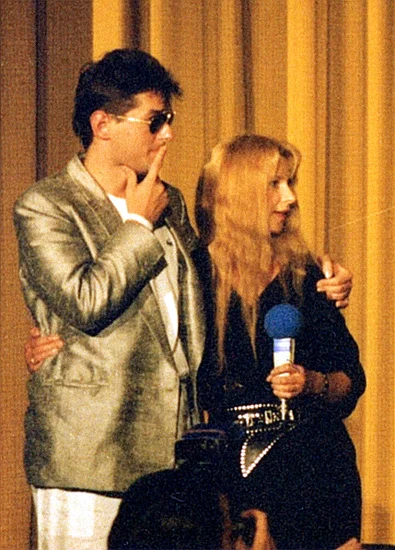
Austrian pop-rock musician Falco died in a car accident in the Dominican Republic at age 40. His sudden death shocked fans worldwide and ended a remarkable musical career.
Falco had achieved international fame with hits like “Rock Me Amadeus” and “Der Kommissar.” His innovative blend of rap and rock influenced European popular music.
2007 – Frankie Laine Dies

American singer-songwriter and actor Frankie Laine died in San Diego, California, at age 93. His death ended one of the longest and most successful careers in popular music.
Laine’s powerful voice and emotional delivery made him a major star in the 1940s and 1950s. His theme songs for Western movies and television shows became classics.
2012 – Antoni Tàpies Dies

Spanish painter and sculptor Antoni Tàpies died in Barcelona at age 88. His death marked the end of one of Spain’s most influential artistic careers.
Tàpies had been a leading figure in abstract expressionism and European art. His innovative use of materials and techniques influenced contemporary artists worldwide.
2022 – Lata Mangeshkar Dies
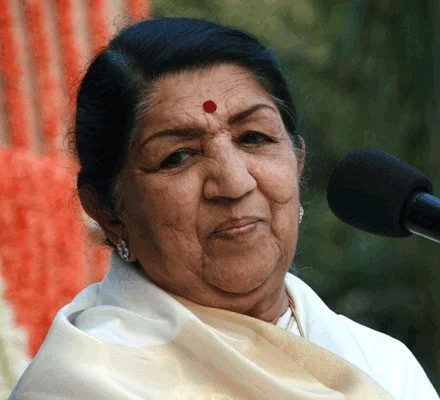
Indian singer and music composer Lata Mangeshkar died in Mumbai at age 92. Her death marked the end of an era in Indian cinema and popular music.
Mangeshkar had recorded thousands of songs in multiple languages over seven decades. Her voice became synonymous with Indian film music and cultural identity.
Holidays and Observances on February 6
International Day of Zero Tolerance to Female Genital Mutilation
The United Nations designated February 6 as International Day of Zero Tolerance to Female Genital Mutilation. This global observance raises awareness about harmful traditional practices affecting women and girls.
The day promotes education and advocacy to end female genital mutilation worldwide. Communities and organizations use this occasion to support survivors and prevent future cases.
Waitangi Day Celebrates New Zealand’s Founding
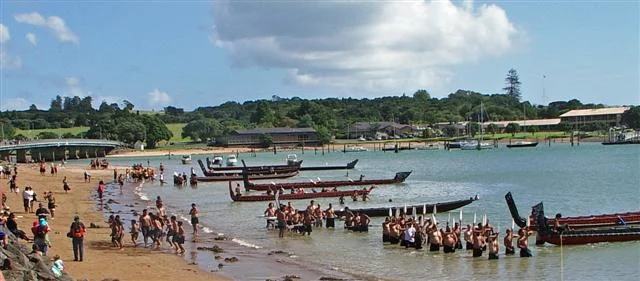
Waitangi Day celebrates the founding of New Zealand in 1840 when the Treaty of Waitangi was signed. This national holiday commemorates the agreement between Māori chiefs and the British Crown.
The day recognizes both the treaty’s historical significance and ongoing efforts toward reconciliation. New Zealanders reflect on their nation’s bicultural heritage and future together.
Sami National Day Recognition
Sami National Day is observed in Russia, Finland, Norway, and Sweden, celebrating the indigenous Sami people’s culture and rights. The day promotes awareness of Sami traditions and modern challenges.
This observance highlights the importance of preserving indigenous languages and customs. Sami communities use the day to strengthen cultural identity and political representation.
Ronald Reagan Day in California
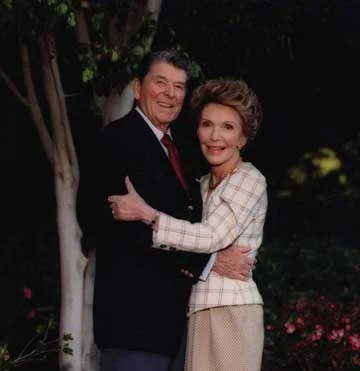
California observes Ronald Reagan Day in honor of the 40th President of the United States. The state holiday recognizes Reagan’s contributions to American politics and his California roots.
Reagan served as California’s governor before becoming president, making him an important figure in state history. The day celebrates his legacy and impact on American conservatism.
